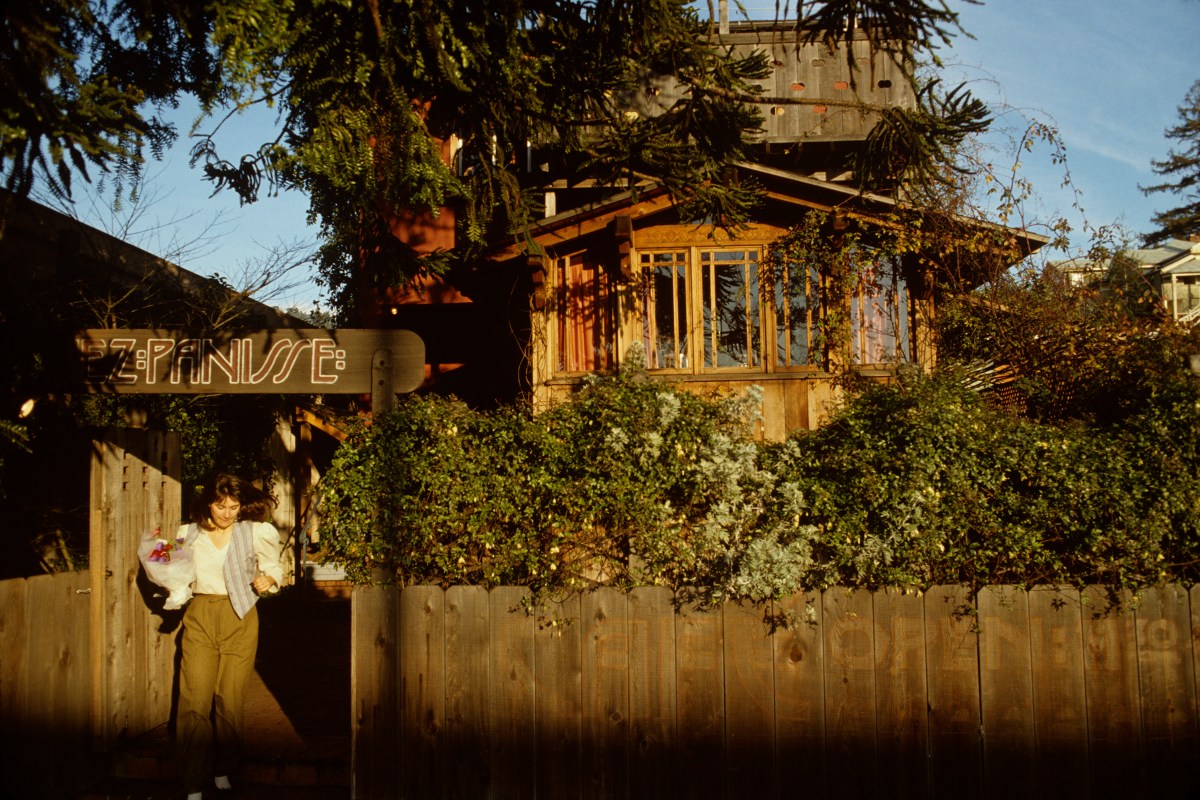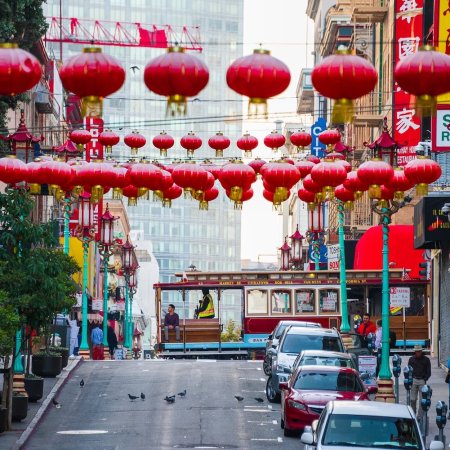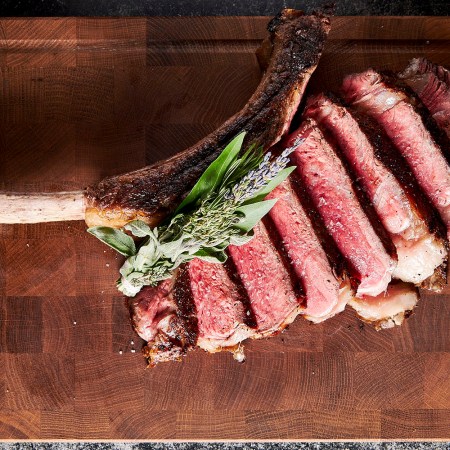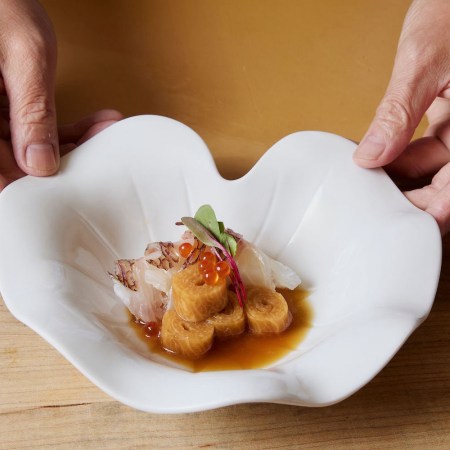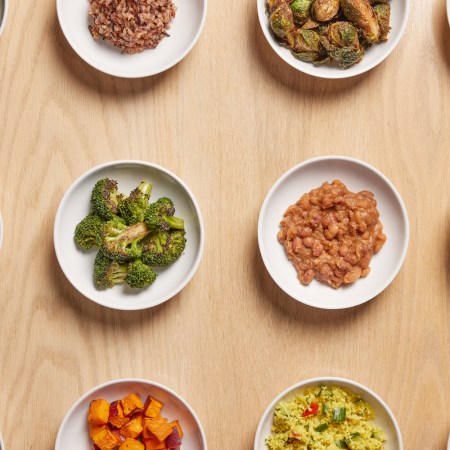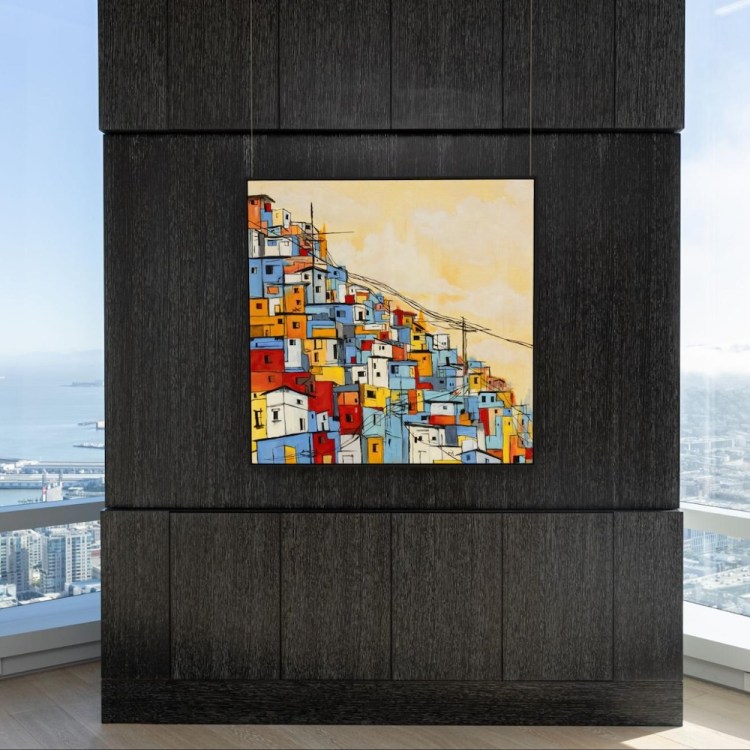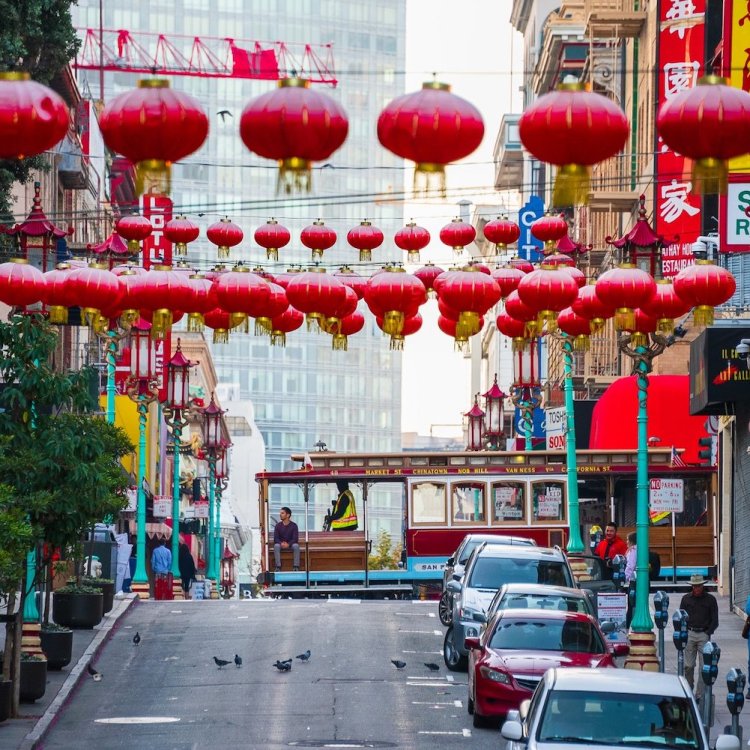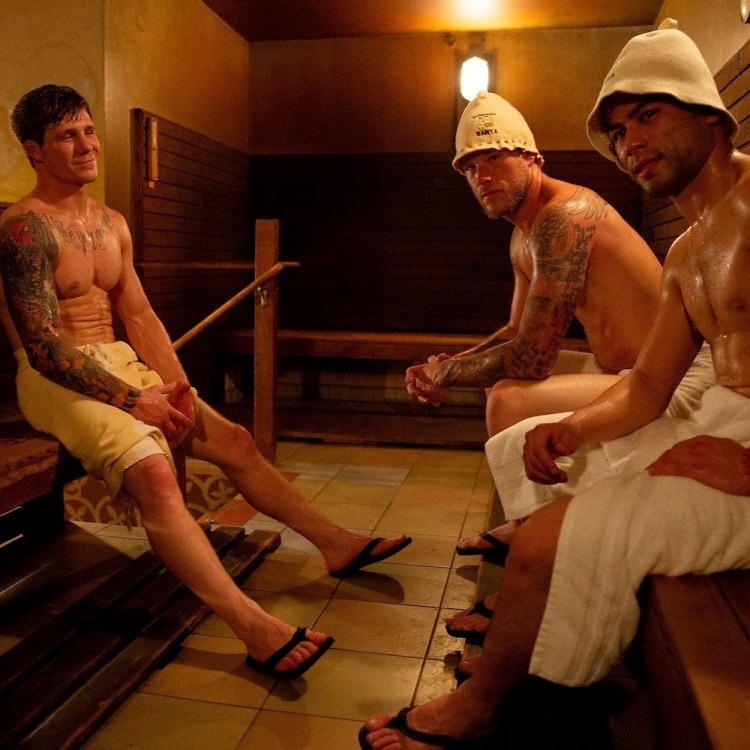Plant-forward, local food is now synonymous with good eating — but these values weren’t always so clear cut. Without Alice Waters, American cuisine might be in a very different place. The pioneering chef and founder of Berkeley’s Chez Panisse set that standard decades ago, thanks to her other-worldly attention to detail, fastidious commitment to local, and focus on vegetables as the stars of the plate.
As Chez Panisse celebrates its 50th anniversary this year, we wanted to spend a minute with some of the chefs who’ve passed through Waters’ kitchen and have since gone on to lead award-winning restaurants and write best-selling books. Below, a portion of what they learned from the inimitable chef.
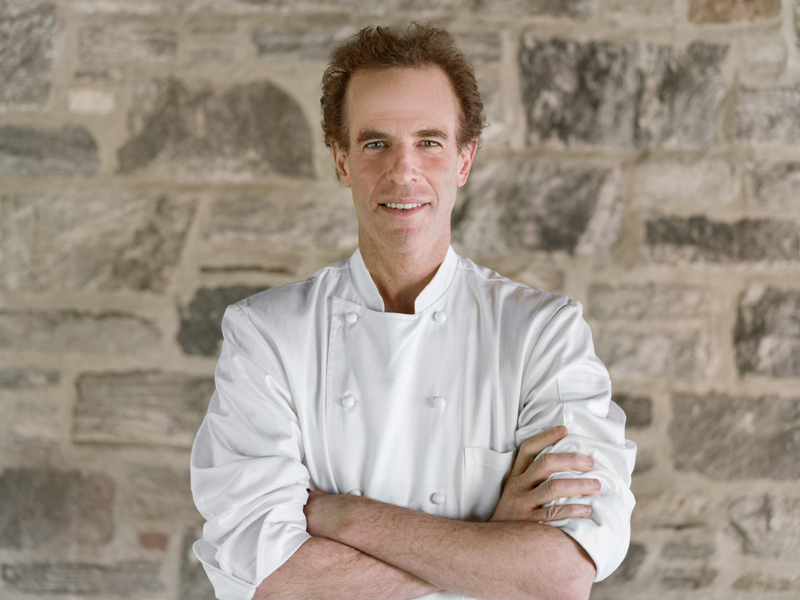
Dan Barber, former stage at Chez Panisse, current co-owner of Blue Hill in New York
On my first day, I was prepping vegetables when I looked up to see Alice Waters staring at me from the doorway. Though she couldn’t have held her gaze for more than a minute or so, it felt like five years. I tried to play it cool. Finally she walks over, offers her hand and says, “Hi, I’m Alice Waters. Welcome to Chez Panisse.”
A minute later, the veteran Chez Panisse cook next to me smiled and said, “That means she’s letting you into the kitchen.”
Though my time in the kitchen was short, my real education came in the following months as I came to know Chez Panisse’s producers. One was Bob Cannard, a Northern Californian farmer who offered a deep education on soil health, helping me to understand that a recipe for delicious food starts in the field. My training continued afterwards, when I moved to Bordeaux to assist Chez Panisse’s opening chef, Jean Pierre Mouillé, with his culinary education program.
There were two seatings every evening at Chez Panisse. After the first seating, the cooks would sit down and have dinner together right in the kitchen. We’d eat the same menu we had just served to guests, while the sous chefs made adjustments to the dishes in anticipation for the second seating. It was an amazing contrast to my experience in New York restaurants, where the family meal often involved mystery meat and undercooked rice. We even drank wine. When I look back on my time at Chez Panisse, what sticks out are the conversations I had with chefs during those meals in the kitchen — they taught me more than working the line ever could.
Star ingredient
On one of my first nights in the kitchen, I was drawn over to the pastry station by the most incredible dish — not because the dessert was so beautiful, but because I’d never seen anything like it: a single peach, unadorned on a plate. No sauce, nothing. The menu read, “Mas Masumoto, Sun Crest Peach,” and it acutely represented the purity of Alice Waters. To buy something so delicious, so close to perfection and say, “The farmer did all the work.”
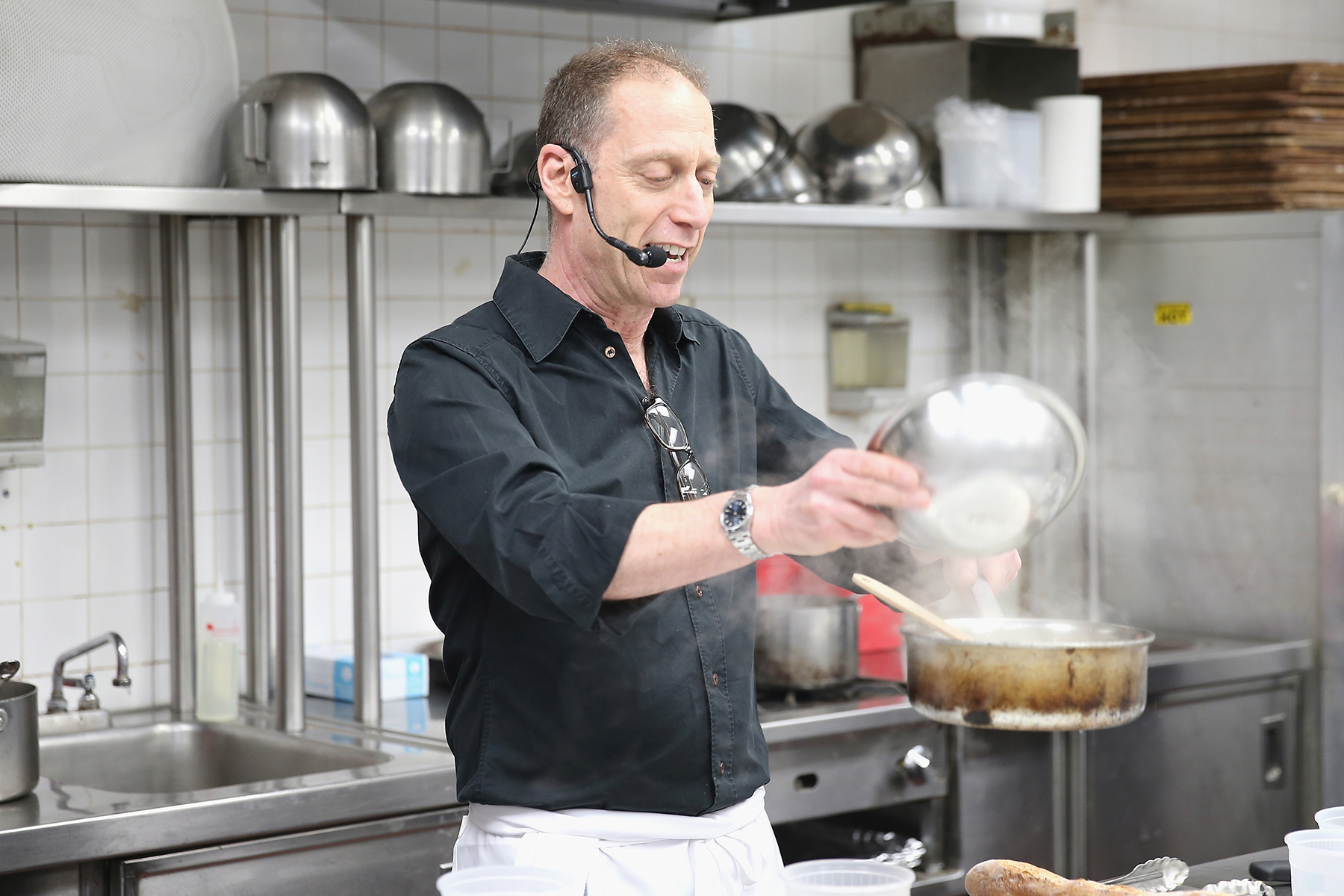
David Lebovitz, former baker at Chez Panisse, current author based in Paris
I arrived in the early 1980s, just when California Cuisine was becoming a big thing, and Chez Panisse was the epicenter of it — if not ground zero, where it started. I’d been working in a vegetarian restaurant in upstate New York, where we used locally made dairy products and produce from local farms. When I read The Chez Panisse Menu Cookbook, where the names of producers were featured on the menus, that made me want to work there.
When I arrived, things were really hectic and a little crazy. The restaurant was bursting at the seams, and it seemed like none of us had a moment to even breathe. But it was really fun, and we were all a family in it together, with the same objective: to send out the best food we could using the best ingredients. What was different at Chez Panisse was that Alice never looked at the price of anything; if someone had beautiful fraises des bois from their backyard, or mesclun salad greens (which few in America knew about at the time), or was making organic butter locally, we bought it. That’s pretty unheard of in the restaurant business, even today.
Star ingredient
One thing I really discovered there is that quality olive oil changes everything. I started at the restaurant by making salads, which were very simple, but were made with greens that were picked that afternoon. When I saw how a simple vinaigrette with excellent quality olive oil (and vinegar) could heighten a salad, that was a revelation. The green salad was, and still is, the benchmark dish at Chez Panisse both in the café and restaurant. I’ve never had a better green salad anywhere.
Best advice from Alice in five words or less
Go do your own thing.
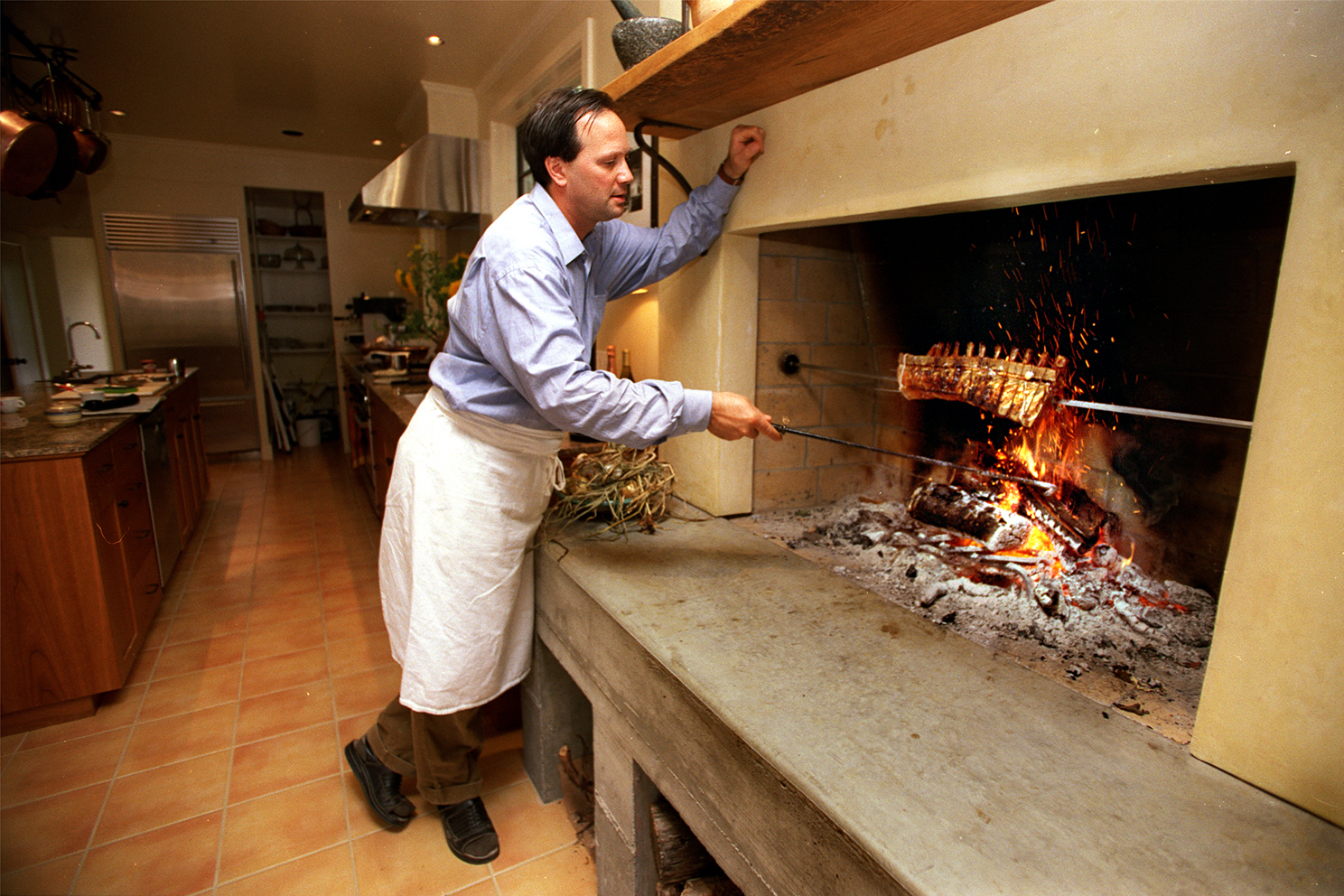
Paul Bertolli, former executive chef, current owner of Fra’ Mani Handcrafted Foods
In 1982, I walked in and was captivated by the aromas of authentic cooking. Chez Panisse boasts a fantastic collaborative work culture. The prix fixe nightly changing menu is altogether different from any other restaurant. The concentration on up-to-the-moment ingredients foraged locally and improvisatory approach suited my interest and my style. I left [after ten years, in 1992], as I felt I had contributed as much as I could at the time and wanted to expand my horizons. I still have the same values in sourcing sustainable foods.
Star ingredient
Aceto Balsamico
Best advice from Alice in five words or less
Find your way to the bliss point.
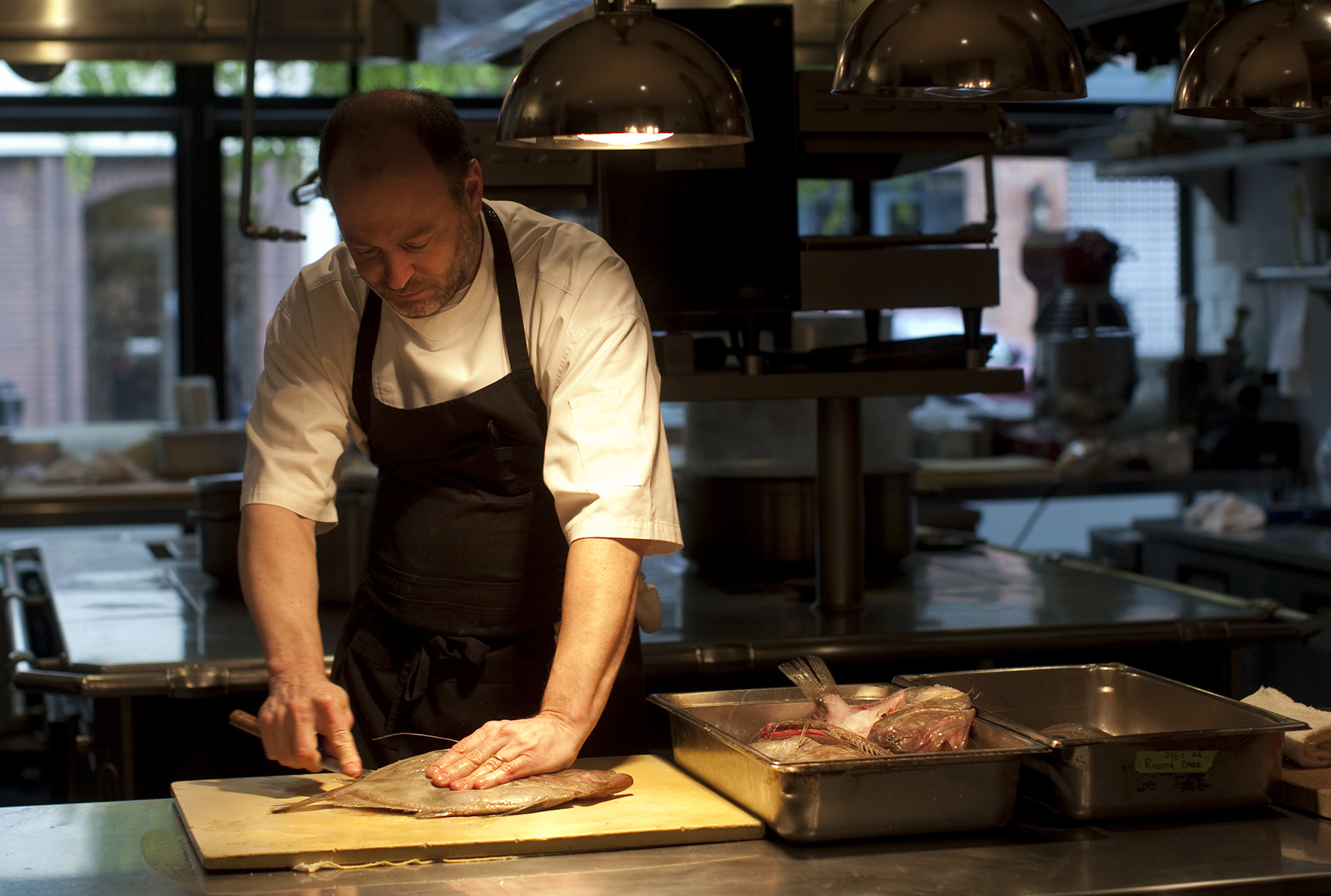
Michael Tusk, former cook, current chef and co-owner of three-Michelin-star Quince
I joined the kitchen at Chez Panisse after working at Stars in San Francisco. I was a young cook at Chez — I started upstairs in the Café, and later worked downstairs in the restaurant. I was happy to work wherever they needed me.
Lulu Peyraud of Domaine Tempier visited Chez as a guest chef. Watching her make bouillabaisse in a copper cauldron over the hearth was enough to make me realize that I had to go to Europe to continue my cooking education. Ultimately, that’s all thanks to Chez.
By the time I started working at Chez, there were already people who had been there for five, 10, 20 years. It felt like we had all made a concerted choice to be there, and to be a part of what the restaurant represented. To work at Chez meant that you wanted to go out of your way to work with small farmers and create a menu that changed constantly. It was the first time I learned exactly where and why things were grown all over Northern California. I had never seen vegetables and fruits like the ones I did unpacking deliveries from Chino Ranch on Wednesdays. It was definitely not your average restaurant — I had never heard of a restaurant having a forager on staff.
I learned from Chez Panisse and from Alice that relationships are everything. It made me think about produce on a weekly or daily basis rather than in terms of four seasons; Northern California has tons of micro seasons. I also learned about how to work with farmers to grow specific products. I probably wouldn’t have invested in Fresh Run Farm if I hadn’t worked at Chez.
Star ingredient
The best mulberries I’ve ever eaten in my life come from a giant mulberry tree about 45 minutes north of Berkeley.
Best advice from Alice in five words or less
Keep it natural, honest, fresh.
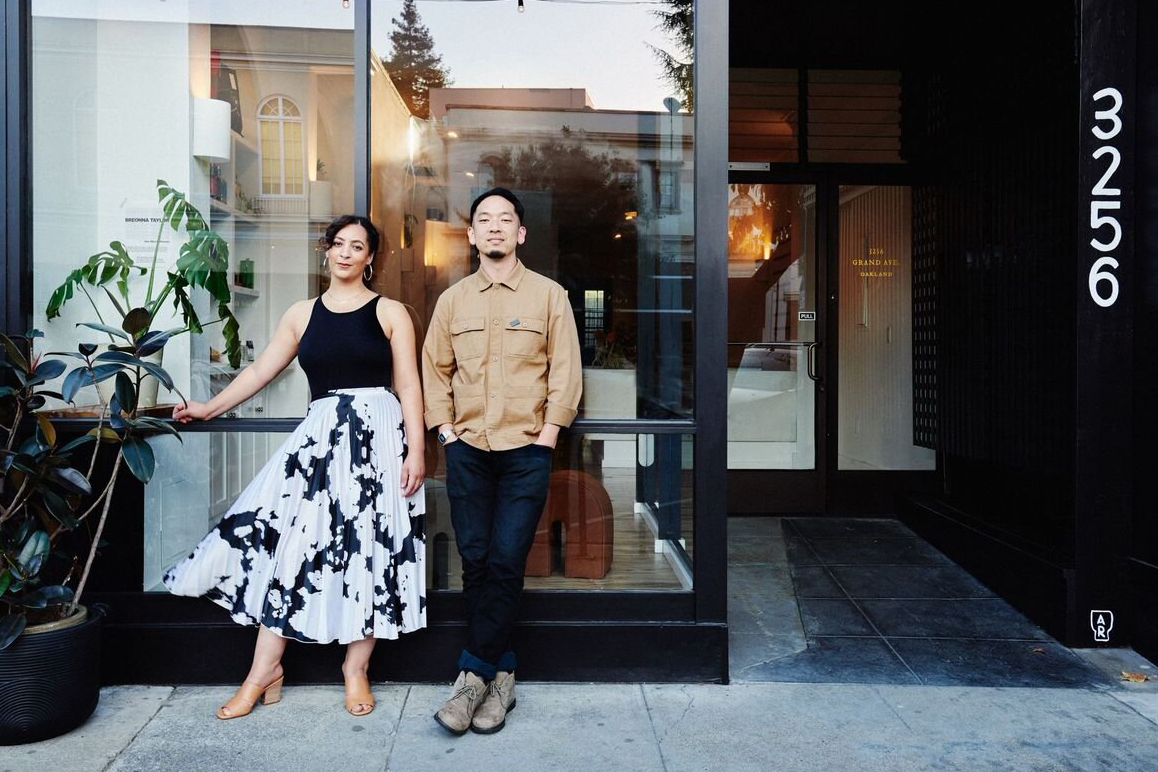
Jessica Moncada Konte, former server, current owner of Alkali Rye beverage shop in Oakland
I think the biggest impression to me was staff education. I was 19, but I was working alongside some of the most incredible chefs. I was probably so annoying, but I was always asking so many questions. And everyone was always really kind and open, and was always sharing knowledge. That’s something that I really bring into Alkali Rye. We’re always tasting; we’re always sharing. And not making anyone feel dumb because they don’t know something. Even with our customers, we always just want to be kind and focused on education.
The other thing that had a big impression on me was how they took care of their staff. We had healthcare, and we had dental, and paid vacation, and sick days. And this was a long time ago! And they were paying way above the minimum wage for even starting positions. That always resonated with me as well.
I think to me my store is very much a continuation of how Alice made us think about food, in terms of where our meat comes from and where our vegetables come from. I think now as a culture, we’re very conscious about that farm-to-table stream, but I think there is a disconnect when we think about wine or spirits or coffee. They also come from plants, and they also are agriculture. We need to think about sustainability within these products as well, especially things like mezcal and agave, and think about the farmers and the producers. It doesn’t just end with food.
Star ingredient
There are still salads that I make today that make me think of Chez Panisse. Like blood orange and black olives and red onions — that’s a winter salad that I love making, and I definitely learned that there. And a lot of, like, shaved fennel and radishes and that sort of thing. I think definitely a big love of vegetables and salads came from my time there. And that salads don’t just have to be lettuce. It’s really kind of mind-blowing sometimes.
Best advice from Alice in five words or less
Don’t follow the recipe.
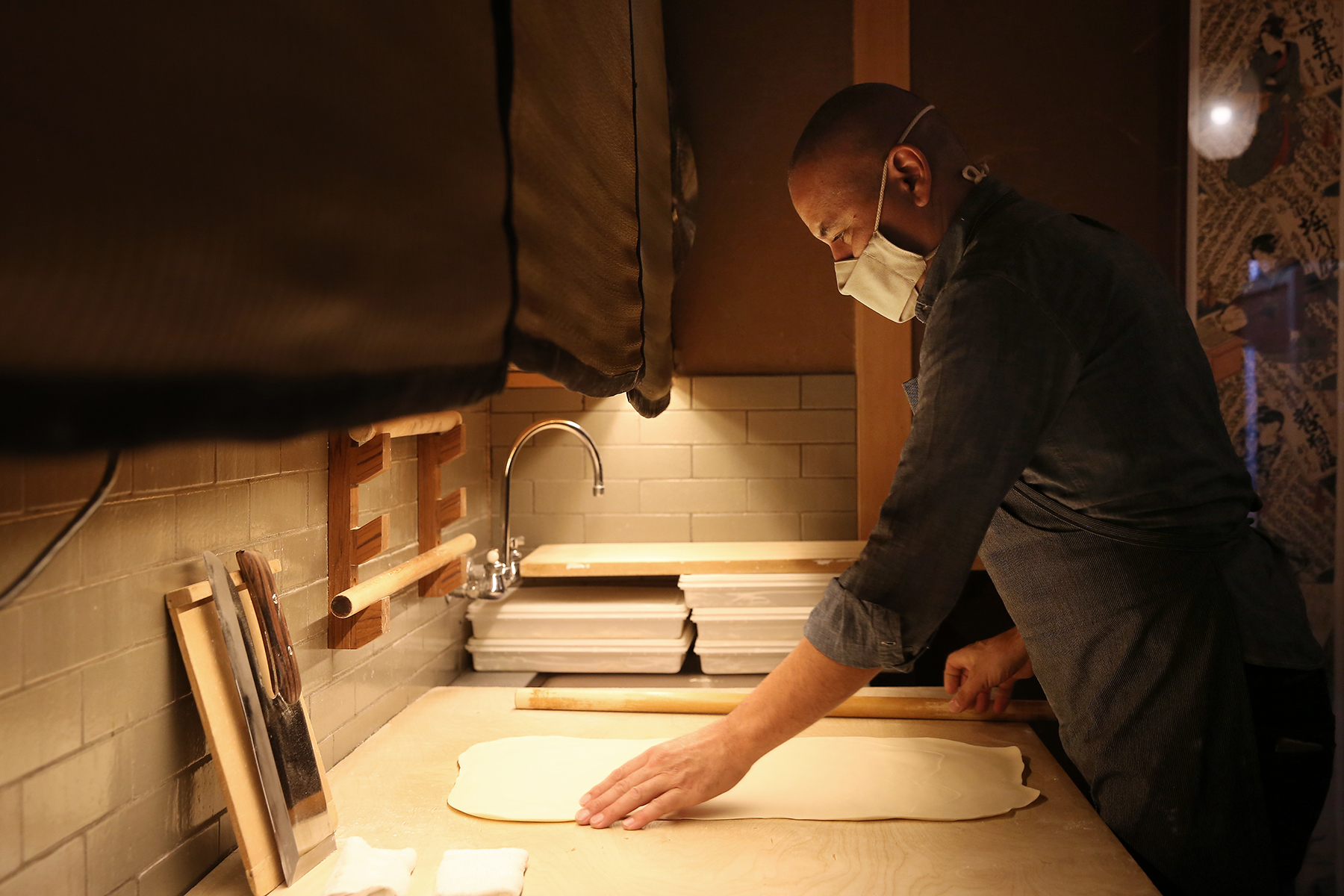
Sylvan Mishima Brackett, former primary assistant to Alice Waters, current chef-owner of Izakaya Rintaro in San Francisco
I came in originally — I think I was like 25 — to just help with some computer issues around the office. This was just around the time of Chez Panisse’s 30th birthday, so it was a huge event with a lot of coordinating. There were just a billion parts to it, so I kind of came at a lucky time when they really needed a lot of help, and Alice asked me to stay on, and I ended up staying on for seven years.
I’m pretty obsessed about lighting, now. Noticing lightbulbs when they’re out — I mean, Alice Waters, she walked into the dining room and she would notice three dead lightbulbs or light adjustments that weren’t quite right. She was also obsessed about making sure that everyone’s name was spelled correctly always, even on internal notes and memos. It shows kind of a level of awareness and engagement in your work, which I think is really important.
Star ingredient
They have a pretty famous fruit plate that’s on the menu every night, and people often scoff at how it’s $15 for a peach and a couple of figs, or something, but they buy peaches from the best peach farmers in California, and then the peach farmers, because it’s Chez Panisse, send their best flats of peaches, and then the pastry chef chooses the best peaches in that flat. And then they serve those peaches just plain, but they are very different than your average peach. So that kind of intensity around the fruit especially is super exciting.
Best advice from Alice in five words or less
“Hire her if she’s good.” I did seven years of catering after I left Chez Panisse, and I was preparing to open Rintaro, my restaurant. And there was a very skilled cook that was doing pastry for me, and she was making Japanese food at a level that no one else is or was. And the question was whether or not I should hire a pastry chef. As we were a brand-new restaurant, it seemed like a huge luxury, and something we really couldn’t afford, and so I called Alice to ask her, and so she told me to “hire her if she’s good.” The implication being that what she’s done at the restaurant is gather all of these incredible people together. And it’s this really, really strong team that makes the restaurant what it is.
Every Thursday, our resident experts see to it that you’re up to date on the latest from the world of drinks. Trend reports, bottle reviews, cocktail recipes and more. Sign up for THE SPILL now.
